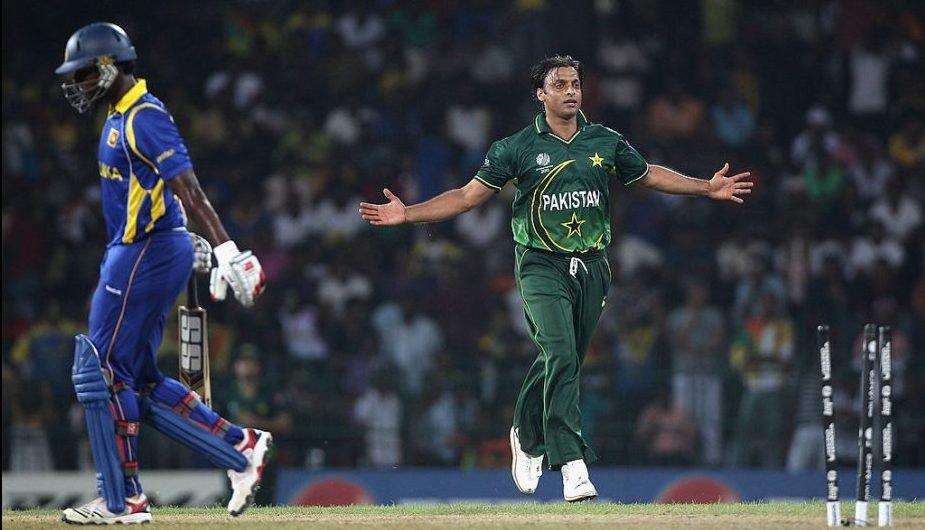Shoaib Akhtar: The tearaway who was one of us

Pakistani writer Rehan-ul-Haq remembers the playing career of Shoaib Akhtar, a bowler who was thrilling and exasperating in equal measure.
Growing up in Pakistan, you develop a certain sense of injustice over time. You feel the system is your enemy and without clout, there is not much you can do. You develop animosity towards the state and the system. Frustration builds up and eventually turns into anger. In reality, you are fighting your own demons just as much the system that surrounds you. Everything you put faith in either disheartens you or doesn’t last long enough to make a real difference.
The Nineties were notorious for governments falling and the national cricket team continuously having to deal with mutinies. The Wasim-Waqar rivalry was like the Nawaz-Bhutto enmity; no inch was given, and whoever had supremacy tried to oust the other. When Wasim Akram took command of the team in 1997, a man from the system was given an opportunity. A tearaway quick by the name of Shoaib Akhtar.
He immediately became the darling of Pakistan. In Kolkata he dismantled Dravid and Sachin’s stumps off back-to-back deliveries to confirm that Pakistan had found another fast-bowling sensation. Back then, a fast bowler coming through the ranks was run-of-the-mill stuff, but such was Akhtar’s impact that the great Waqar Younis’ near-complete absence in the run to the 1999 World Cup final was hardly felt.
Perhaps the reason Akhtar became so loved by Pakistani fans was that he hit on something close to home. He wasn’t one of Imran’s boys. He had broken into the team without a guiding figure promoting and protecting him. He had no clout; he was as unadulterated a version of an average Pakistani as one could be. He was always angry and scrutinised, fighting with his own demons. He was every Pakistani citizen who avoids paying taxes yet whimpers about the state not doing anything worthwhile.
Akhtar’s run-up in itself was a voyage. He ran from right next to the boundary, so close to the fans that you could hear him breathing from the stands. You would run in with Akhtar, you would feel his anger. The batsman at the other end was your enemy, embodying everything unjust in Pakistan, so you would curse him and wish to see blood. It wasn’t just about getting him out; it was about breaking toes, ribs, noses and eventually the stumps. Anything less was an anti-climax and there were plenty of those throughout Shoaib’s career. All of Akhtar’s riveting short stories were an apex short of becoming a great tale. But then again his imperfections made him even more relatable to the average Pakistani.
Forty-six Test matches in a career that spanned 14 years is far too low a figure, which means Akhtar never really climbed into the category of a hall-of-famer. But it was all about his moments, the ones that belonged to him and him alone, the ones where he would destroy the opposition in one spell.
He bowled on just one day of the entire three-Test away series with South Africa in 2007 and that one day was enough to win Pakistan only its second Test match in that country. Akhtar let rip 11 overs and picked up four crucial wickets to dismiss the Proteas for 124 in the first innings, setting up a famous five-wicket win at Port Elizabeth. Having injured himself in the process, he did not bowl in the second innings and was caught on camera having a spat with Pakistan head coach Bob Woolmer, who questioned whether his pain was legitimate. It was typical Akhtar – creeping towards a high, only to drop back once more.
Following his success at the 1999 World Cup, his appearances on the global stage were hardly awe-inspiring. In fact, his presence at the 2003 World Cup was a bigger disappointment than his absence at the 2007 edition.
He annihilated world champions Australia in a three-match ODI series Down Under eight months out from the start of the 2003 tournament, taking seven wickets in two matches to deliver a series victory and bag himself the Player-of-the-Series award. On the back of this triumph, much was expected of Akhtar at the World Cup, where he looked set to wreak havoc on bouncy South African wickets. And yet, once again, his own demons and obsessions got the better of him.
He seemed more absorbed with testing the speed gun than on his overall performance, famously clocking 100.2mph against England when bowling to Nick Knight. It mattered little, though, as he was the most expensive bowler in that match, giving away 63 runs in nine overs for just a solitary wicket. Pakistan ended up losing and were eventually eliminated from the group stage of the World Cup for the first time since 1975. Yet again his story lacked a brilliant climax.
Often in Pakistan, you are given flashes of hope for a better tomorrow. Sometimes it comes in the shape of democracy being restored, sometimes by a policy that catapults your property’s market value, sometimes by an increase in the pay structure at work. But if you are an average citizen, then none of that lasts, because either the world conspires against you or you find a way to shoot yourself in the foot. A high is almost always followed by an extreme low and what is left is an exasperated Pakistani filled with anger and what-ifs.
Shoaib Akhtar is that angry Pakistani who will never find the answers to what might have been. He is as flawed and as contaminated as we all are. He is the uprising that could never quite fully rise. He is the rebel we have all been at some point. He is one of us.

